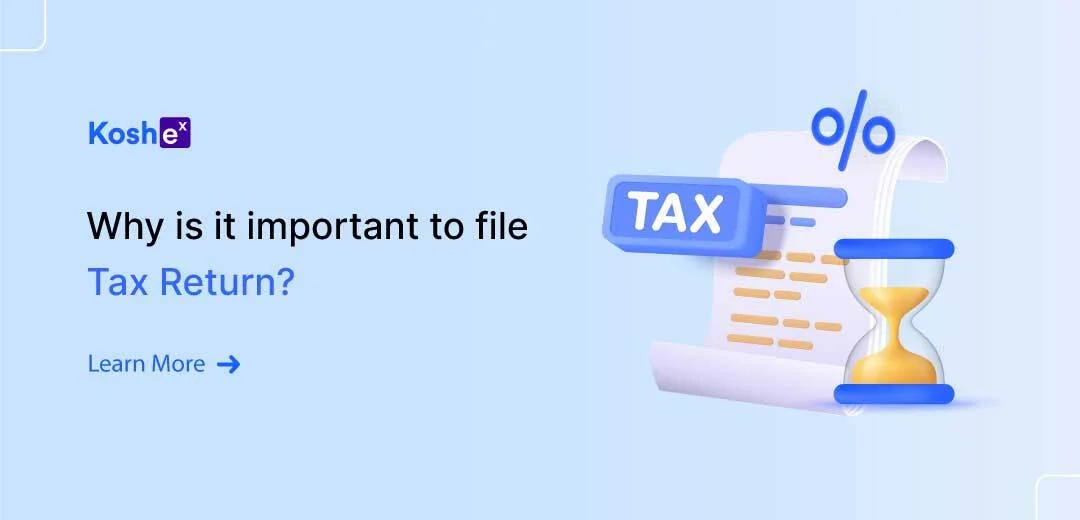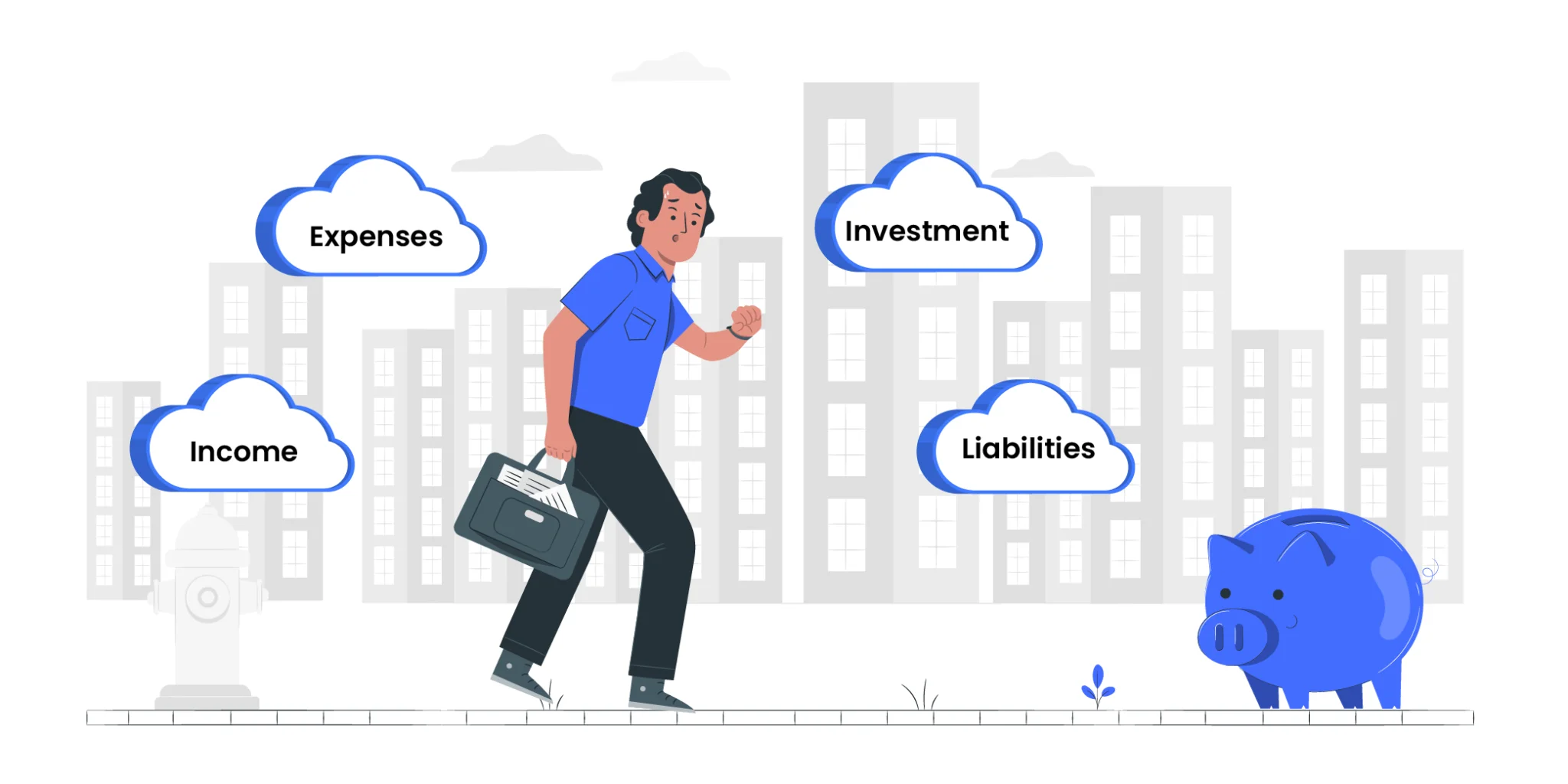Income Tax Returns (ITR) filing is one of the key compliances under the Income Tax Act of 1961. It is an annual return that should be filed by taxpayers who fall under the prescribed criteria. Further, taxpayers can opt for voluntary filing of income tax returns due to their benefits.
It is important to file tax returns not only for tax compliance but as income proof that is useful to us for various purposes.
The taxpayers who either paid income tax, filed ITR, or in case TDS was deducted, were only 8.22 crores for the assessment year 2020-21.
Thus, there is a need to spread awareness about the benefits of filing an ITR. Let’s understand the benefits and debunk some myths about filing income tax returns. Also, let us see the role of mutual fund investing with Koshex in our income tax return.
Benefits of Filing Your Income Tax Returns
ITR is useful no matter the business or profession, whether we are salaried or have earned through capital gains. Here are some of the major reasons it is important to file tax returns:
Mandatory Compliances
The Income Tax Act of 1961 has specified certain conditions, the fulfillment of which will trigger the mandatory filing of the income tax return ITR.
One such condition is that if the taxpayer’s income exceeds the basic exemption limit, then the taxpayer shall be required to file the income tax return. Here is the basic exemption limit for different classes of taxpayers.
| Classes of Taxpayers | Basic Exemption Limit |
| Individuals below the age of 60 years and HUFs | Rs. 2.50 lakhs |
| Individuals aged 60 years and above but below the age of 80 years | Rs. 3 lakhs |
| Individuals aged 80 years and above | Rs. 5 lakhs |
Thus, if our income exceeds the above limit, it is mandatory to file the ITR.
Availing of Loans
Income tax returns are mandatory proofs of income for availing of loans.
As it considers our income during the entire year, ITR acts as an assurance for the bank that the applicant has a steady source of income.
Usually, banks and financial institutions require the ITR of the last three years to process a loan application. Non-furnishing of income tax returns can lead to the rejection of the loan application.
Adjustment of Losses
Income tax law permits the setting off of losses against your income. It has detailed provisions governing the losses and how to adjust them against the income.
This directly reduces our taxable income and consequent tax liability. One of the prerequisites for adjusting the losses against income is to file an income tax return.
There are many types of losses prescribed in the income tax provisions, such as loss from business, house property, capital loss, etc.
We can also carry forward our losses to subsequent years, in case our income this year is insufficient to set off total losses. But in most cases, even if the ITR is filed after the due date, we become ineligible to carry forward the losses.
VISA Applications
If you want to travel to any foreign country, VISA is necessary. One requirement to get a VISA is to furnish your income tax returns. Thus, you may find it hard to visit foreign places without income tax returns.
Eligible for Government Tenders
The government launches tenders for projects across various industries. A prerequisite to undertaking these projects is furnishing the income tax returns.
This shows how much potential the organization holds. Thus, not having income tax returns can disqualify us from participating in government projects.
Claiming Tax Refunds
We might think that if we have not filed any income tax refund, how can a refund arise? Well, it is through TDS, TCS, advance tax, etc., that we might have paid during the financial year.
TDS is one of the most common reasons for income tax refunds.
There are detailed provisions for TDS under the income tax law whereby the person making the payment shall deduct a certain amount and deposit it with the government.
The recipient of income can then claim the refund of this amount. However, the refund can only be claimed if the recipient files the income tax return ITR.
Being Responsible
Lastly, regularly filing your income tax returns is a sign of being a responsible citizen of this country. It shows that you abide by the law, disclose your income truly and fairly, and are participating in the nation’s economic progress by paying taxes that may arise.
Debunking Myths Relating to Income Tax Returns
Certain myths are associated with income tax returns, due to which people may hesitate to file their tax returns. Let’s debunk those myths here:
I will have to pay huge taxes.
This is not the case. We only have to pay tax if our income crosses a certain threshold. Further, the tax rates in India are slab-wise. For the first Rs. 5 lakhs of income, we don’t have to pay a single penny as tax.
For the next Rs. 5 lakhs, the tax rate is 20%. If the income exceeds Rs. 10 lakhs, then the tax rate is 30%. Thus, our tax liability is zero if our income is below Rs. 5 lakhs.
Also explore: How to Save Tax in India | Tax Saving Guide
It is a costly process.
Filing your income tax returns does not involve any government fees. If you take assistance from any tax professional, they may charge specific fees for the professional services.
However, the fees for filing ITR are often nominal, and considering that it only has to be filed once a year, the fees are minimal.
It is very technical and time-consuming.
We need to have basic knowledge of income tax provisions to file our income tax returns. Thus, it is always preferable to take the assistance of tax professionals for filing the return.
This will save us a lot of time against certain nominal fees.
What if I make a mistake and end up paying penalties?
The income tax law has a provision for filing the revised return. Thus, even if we make any mistake in filing the original return, we can rectify the mistake in the revised return.
Further, the penalties in income tax law aren’t huge unless we get involved in any fraud or scam (which comes with a heavy price!)
In a nutshell
Filing income tax returns has its own set of benefits. If more and more people start filing their tax returns, they can unlock all the benefits listed above.
Further, the government will also get accurate data regarding how our economy is performing. Thus, it’s time we begin filing our income tax returns regularly and avail of the above benefits.
Further, if we invest in ELSS mutual funds or tax-saver funds, we can claim a deduction of up to Rs. 1.50 lakhs for each financial year. We need to do two things to claim this deduction:
- Invest in ELSS funds
- File income tax returns
Koshex has 5000+ funds to select through which you can easily file income tax returns, claim the deduction, and save tax. It’s time to use your investment strategy to save taxes.
Frequently Asked Questions
Q: What is the due date for filing the income tax return?
A: The due date for filing the income tax returns is 31st July after the end of the financial year. However, it changes if we fall under the audit criteria.
Q: What if I miss the due date for filing my income tax return?
A: Even if you miss the due date, you can still file your income tax return by the 31st of December of that financial year. But you will have to pay specific late fees due to filing your income tax return belatedly.









Leave a Comment